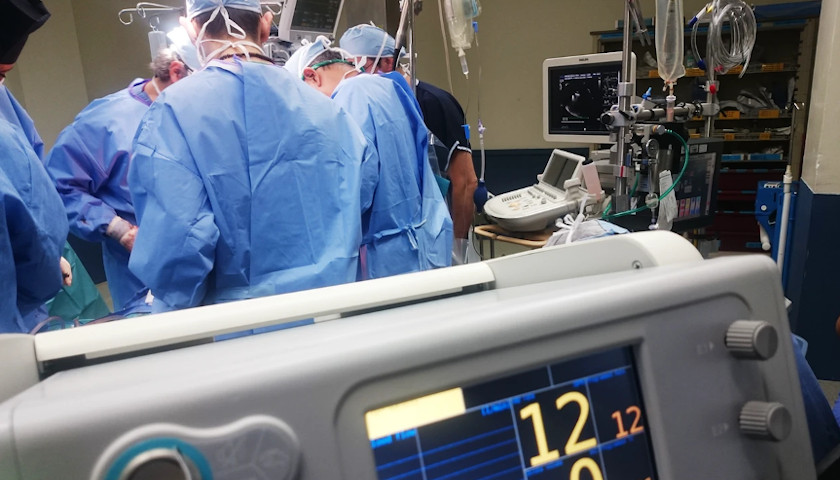The Virginia Hospital and Healthcare Association (VHHA) launched an online tool to direct consumers to price transparency documents, including estimates and services pricing for hospitals across Virginia.
VHHA President and CEO Sean Connaughton said in a press release, “This new online tool continues a long tradition of Virginia hospitals promoting transparency about health care prices, the COVID-19 pandemic, inpatient behavioral health admissions, health care quality in hospitals, and so much more. With the support of our member hospitals and health systems, we are pleased to present this information to the public.”
Beginning January 2021, the U.S. Centers for Medicare and Medicaid (CMS) began enforcing new rules for price transparency at hospitals, which are required by federal statute to publish a single machine-readable file with standard charges for services and items, including gross charges, discounted cash prices, prices negotiated with healthcare plans for those services, and de-identified maximum and minimum negotiated prices. Additionally, hospitals must publish either 300 shoppable services — a list of specific services formatted in a consumer-friendly way, or provide an internet-based price-estimator tool.
The VHHA price transparency tool includes menus to select from Virginia hospitals and links to the hospitals’ websites housing the price transparency documents.
“Virginia hospitals are committed to caring for the communities we serve, helping people lead healthier lives, and working to educate the public about how our health care system functions,” CEO of Clinch Valley Health and the Chair of the VHHA Board of Directors Peter Mulkey said in the press release, “The publication of this new online tool demonstrates our continued commitment to advancing those values.”
Price Transparency Compliance
A CMS spokesperson told The Virginia Star that the agency issued 356 warning notices to hospitals across the U.S. that were out of compliance. CMS followed the warning notices with 168 corrective action plan requests for hospitals that didn’t correct deficiencies. So far, 192 hospitals have received case closure notices, while as of June 8, only two hospitals in the U.S. and Virginia were fined for non-compliance.
Some consumer advocates think the problem is bigger than that.
In February, Patient Rights Advocate (PRA) reported the results of a study of 1,000 hospitals, including 23 in Virginia. PRA determined that only 143 of the sampled hospitals were in compliance and that many hospitals across the U.S. did not post a complete machine-readable file, including 20 Virginia hospitals with incomplete machine-readable files, according to the PRA review performed at the end of 2021 and beginning of 2022.
“The most significant finding of noncompliance is that the majority of hospitals did not post all payer-specific and plan-specific negotiated rates,” PRA said in its report.
“We also found noncompliance due to incomplete or missing data fields, or fields with zeros, N/A’s, and asterisks for negotiated rates. We frequently found that hospitals listed a far greater number of ‘accepted insurance plans’ elsewhere on
their websites than they showed in their standard charges file, implying that their standard charges file did not include all accepted plans. Many hospitals identified only payer names and not the associated plan names,” the report states.
The CMS spokesperson said, “We are aware that several interested parties have analyzed hospital compliance using various methodologies with reports that compliance ranges from a low of 14 percent to as high as 83 percent. We continue to monitor compliance and have implemented the increased penalty.”
PRA Founder Cynthia Fisher told The Star that the goal is to enable consumers to see prices before they get care, creating a competitive marketplace. Fisher wants consumers to be able to compare different hospitals and the rates at each hospital based on various insurance plans.
“We know that coverage really matters because all consumers pay for coverage out of their wages, right, sacrifice wages, and we share in those expenses for premiums with our employers, and we pay with our wallets and our savings accounts for anything that’s not covered,” Fisher said.
She praised Virginia’s General Assembly and Governor Glenn Youngkin for bipartisan work passing Delegate Dan Helmer’s (D-Fairfax) HB 481, which requires hospitals to publish a machine-readable file containing “all standard charges for all items and services provided by the hospital.”
“That’s a big deal, because that means it’s very important to all Virginians to get access to these prices,” Fisher said.
Fisher said the goal is to enable app developers to create programs where consumers can easily price shop, and to facilitate that, she would like to see the VHHA publish on a single page a list of the links to all Virginia’s hospitals’ machine-readable files.
She said the VHHA’s new price transparency tool is a start.
“The best tool for all Virginians is if all aggregated prices across all hospitals, including cash prices, and across all plans accepted in Virginia hospitals, were readily available in a database that would allow any tech developer, any search engine, to see and compare and shop for the best quality of care at the lowest price.”
– – –
Eric Burk is a reporter at The Virginia Star and The Star News Network. Email tips to [email protected].





